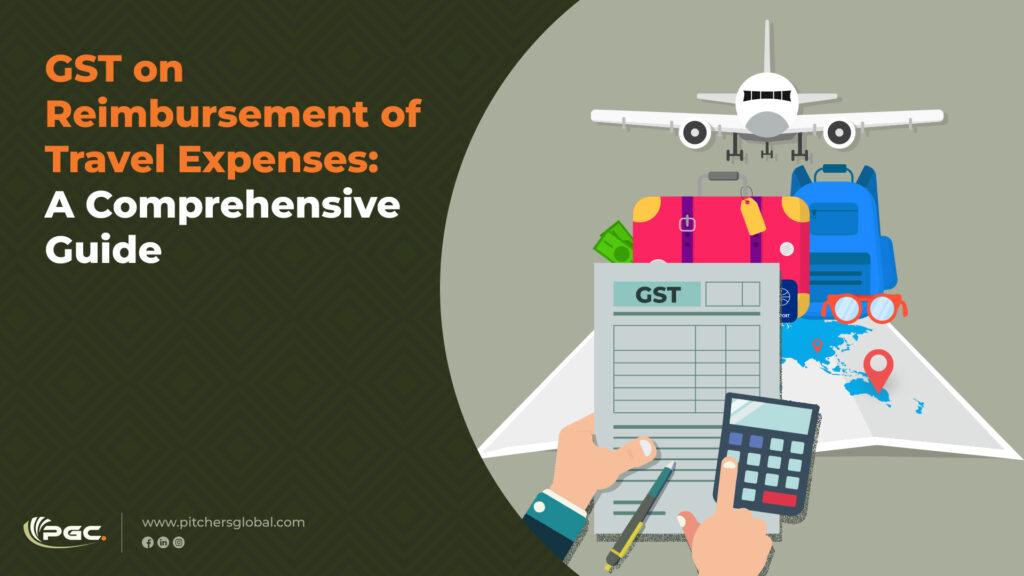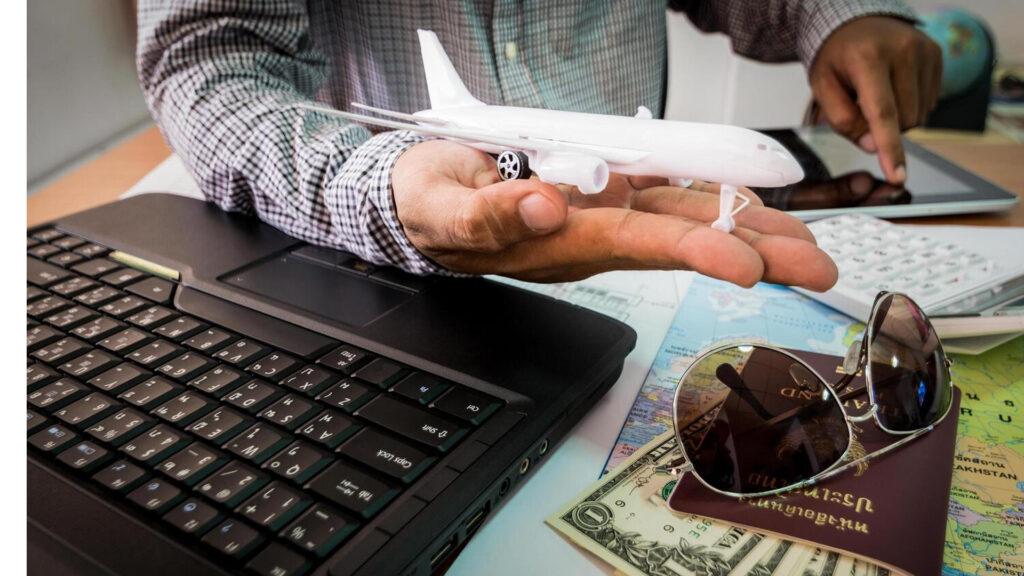This guide explores the critical aspects of GST on reimbursement of travel expenses, helping you ensure your company remains compliant and optimizes input tax credits (ITC).
GST on Reimbursement of Travel Expenses: A Comprehensive Guide
When Does GST Apply to Travel Reimbursements?

A common question is whether GST should be charged on travel reimbursements for employees, consultants, and third-party vendors. The answer depends on the nature of the reimbursement and the contractual relationship involved.
- For Employees: When an employee travels for business, their expenses—such as flights, hotel stays, or meals—are generally reimbursed by the company. Since the employee is acting as an agent of the company, the reimbursement is not considered a taxable supply under GST. While GST is not charged on the reimbursement itself, the company may still claim input tax credits on the GST paid for these expenses, provided the proper tax invoices are in place.
- For Consultants and External Vendors: If a consultant or contractor incurs travel expenses and seeks reimbursement, the situation changes. Here, the GST may be applicable, as the reimbursement can be part of the total consideration for the supply of services. In such cases, GST must be charged on the reimbursed amount, and the consultant should issue an invoice reflecting the appropriate tax.
Claiming Input Tax Credit on Travel-Related Expenses

One of the key objectives for finance managers is to ensure the company maximizes its input tax credits on travel-related expenses. Here’s a breakdown of what qualifies for ITC:
- Hotel Accommodations and Flights: When your company pays for accommodations or air travel for business purposes, GST is applicable on these services. Provided you have GST-compliant invoices and the expenses are for business activities, you are eligible to claim ITC on the GST paid.
- Local Transport and Mileage: GST on services like taxis or ride-hailing services can also be claimed as input tax credit if the expenses are business-related. However, for personal mileage reimbursements to employees, GST does not apply, though proper documentation should be maintained to differentiate between business and personal use.
- Meals and Entertainment: GST paid on food and beverages during travel is not eligible for input tax credit unless the expenses are part of a larger taxable supply, such as catering services for a corporate event.
GST Compliance for Reimbursements: Employees vs. Consultants

The treatment of GST on reimbursements differs for employees and consultants, and understanding this distinction is critical:
- For Employees: Reimbursements to employees for travel-related expenses are generally not subject to GST. However, the company can still claim input tax credits on GST paid for business-related travel expenses if it holds valid tax invoices.
- For Consultants: These payments are usually considered part of the overall taxable supply under the consultant’s service agreement when reimbursing consultants for travel expenses. Therefore, GST must be charged on the reimbursement, and the company should ensure it receives a GST-compliant invoice from the consultant.
Proper Documentation for GST Compliance
To avoid non-compliance and ensure smooth tax audits, maintaining accurate and comprehensive documentation for all travel-related reimbursements is essential. The following steps can help streamline the process:
- Collect GST-compliant invoices for all reimbursed travel expenses.
- Separate taxable and non-taxable expenses in your expense reports to ensure clarity during audits.
- Use expense management software that can automatically track input tax credits, categorize expenses, and generate GST-compliant reports.
Streamlining the Reimbursement Process

Streamlining the reimbursement process for GST compliance not only reduces the administrative burden on the finance team but also ensures accurate and timely GST input credit claims. Consider implementing the following strategies:
- Automated Systems: Invest in expense reporting tools or ERP systems that automate the classification of expenses, track GST input credits, and ensure compliance with GST rules for travel reimbursements.
- Employee Training: Educate employees and external consultants on submitting GST-compliant receipts and clarify which expenses are eligible for GST input credits. This step will help reduce errors in expense claims and ensure compliance with GST laws.
- Stay Updated on GST Changes: GST regulations are subject to frequent changes, and staying informed is crucial.
Complying with GST regulations on travel expense reimbursements is essential for finance managers in ensuring the smooth operation of their company’s financial processes. By understanding when GST applies, how to optimize input tax credits, and implementing efficient documentation practices, finance teams can streamline the reimbursement process and minimize the risk of non-compliance.
Pitchers Global helps staying updated with GST rule changes, educating your team, and leveraging technology for managing reimbursements will make a significant difference in ensuring accuracy and efficiency in handling travel expenses.
